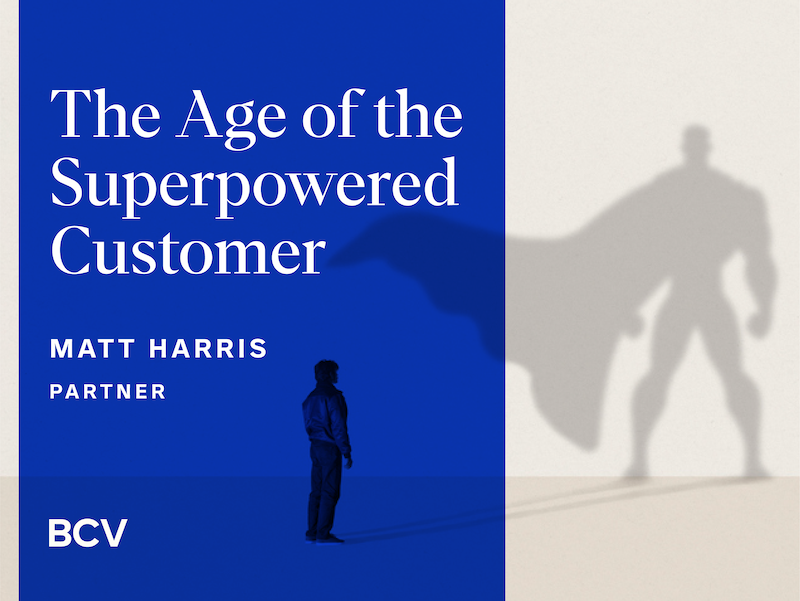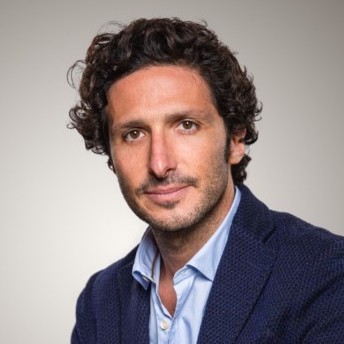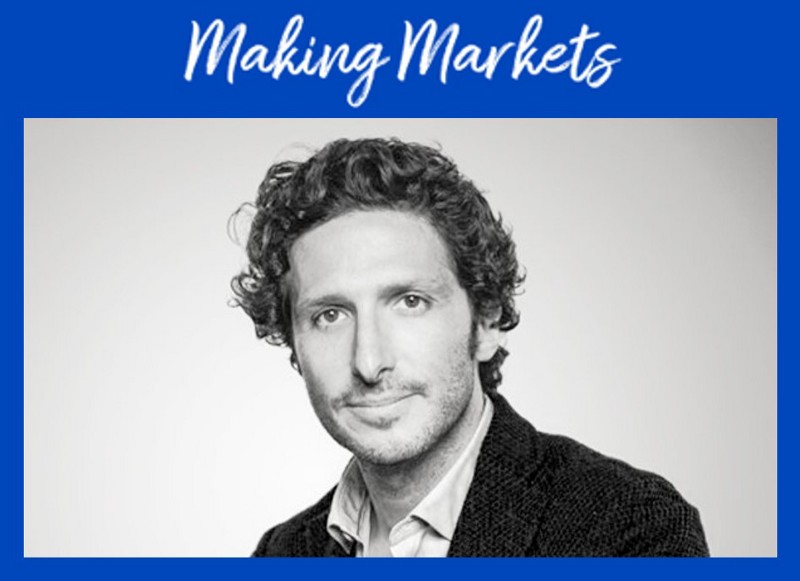
The Age of the Superpowered Customer
Generative AI can make companies more efficient, but customers have more to gain from it than they do — including in banking, commerce and medicine.

In our Making Markets series, learn from exceptional entrepreneurs about their magic moments in company building and important lessons for shaping the industries that matter today.
Adrien Nussenbaum co-founded Mirakl with Philippe Corrot in 2012 to enable any B2C or B2B retailer or wholesaler to easily launch an enterprise marketplace, in which organizations allow third parties to sell through their platforms. Today, over 300 brands in over 40 countries — including H&M Home, Airbus Helicopters, Hewlett Packard Enterprise, Best Buy Canada, and Carrefour — use Mirakl to operate their marketplaces and will transact billions on the platform this year.
The company has raised a total of $955 million, is valued at $3.5 billion after its recent $555 million Series E, and is still growing quickly.
Mirakl offers the industry’s first and most advanced enterprise marketplace SaaS platform. With Mirakl, organizations across B2B and B2C industries can launch marketplaces faster, grow bigger, and operate with confidence as they exceed rising customer expectations.
Platforms are the new competitive advantage in ecommerce, and the world’s most trusted brands choose Mirakl for its comprehensive solution of technology, expertise, and the Mirakl Connect ecosystem to unlock the power of the platform business model.
We recently sat down with Adrien to learn how to attract customers and investors who see, and truly believe in, your long-term vision.
When you started Mirakl, just a handful of retailers were operating enterprise marketplaces and the prevailing thought was only Amazon could win in this space. What gave you the early conviction that marketplaces would become widespread?
Mirakl is the next iteration of the first company Philippe and I started back in 2006, an online marketplace for video games called SplitGames that we later sold to FNAC.
We realized, after working for a few years at FNAC, that they essentially bought our company to disrupt themselves. FNAC knew a marketplace was the only way to win in a world of commerce becoming increasingly digitized, and with new entrants operating under new rules of competition.
For FNAC, a marketplace solved a lot of issues and generated a bunch of new revenue, so we thought, why not do what we had done for FNAC for everyone? We created Mirakl to enable any organization to launch an enterprise marketplace.
Since no one else was offering a third-party marketplace platform back then, you literally had to create your own market. How did you go about acquiring your first customers?
As repeat founders, Philippe and I have a mantra of “chase the elephants.” We knew we had to go after the big guys, and Amazon was of course the biggest elephant, to help retailers compete. We had real confidence in what we were selling, a deep belief in our purpose, and experience running a marketplace on our own and for a large retailer.
We tackled our go-to-market in an almost intellectual way: we didn’t sell our product by calling it faster and cheaper, but instead explained to retailers, “This is the world we know, and here are the different bridges you need to build if you want to succeed at selling online in the future.”
Hard selling doesn’t work for greenfield products; you’ve got to be partners with your early customers to help them reach specific goals. You’ve got to step into the future together.
For that matter, how did you convince your early investors to write their first checks?
For our first round, we met with twenty investors in ten days. A third of the investors we spoke to immediately dismissed our pitch; they didn’t understand our model. Another third were intrigued, but couldn’t fit us into any of their investment categories; we weren’t a retailer, nor a marketplace, nor just an ecommerce software company, but somewhere in the middle of all that.
The other third understood our innovation within minutes. We only work with investors who “get” our model, and Scott Friend at BCV was one of those investors. As a former founder of a retail-tech company himself, he could see into the future in the same way we did, and that’s why we chose BCV to lead our Series C and partnered with them again in our next round of funding the following year.
When you’re creating a new market category, the early years are challenging. What were some of the biggest hurdles you overcame, and what advice do you have for founders facing that steep uphill climb?
We have approached company building as a step-by-step process. If you think of all the things you need to accomplish to get to a huge end-goal, it can be paralyzing. So we set goals at every stage we could actually achieve that would help our business grow.
In our very earliest days, our goal was simply to not kill the business, and thankfully we surpassed that goal! Now that we’re a global company with a valuation of over $3.5 billion, we’re proud of all our teams have accomplished, but we still don’t feel we’ve reached “success,” because we see success as continuing to grow and improve.
Today, the idea of retailers, wholesalers, and B2B companies running third-party ecommerce marketplaces is commonplace, thanks in large part to Mirakl. Now that we’re living in a platform economy, what’s next for ecommerce?
Many of the obstacles such as time, distance, and logistics that made commerce difficult in the past are disappearing. So in this new world, it makes sense to operate fluid marketplaces where goods flow freely at the best prices and buyers and sellers can find each other easily. You can now buy a sofa online directly from the manufacturer in China, so where does that leave retail furniture stores? The middleman is essentially going away.
So businesses in the middle have to stop thinking of moving an item from left to right, and instead place themselves at the center of an ecosystem, facilitating exchanges between manufacturers and end-buyers. In the near future, the B2B and B2C brands that succeed will be those that connect people and enterprises to the right products and services.
BCV first invested in Mirakl in 2019 and has proudly continued to support their exponential growth.

Generative AI can make companies more efficient, but customers have more to gain from it than they do — including in banking, commerce and medicine.
Together with Bain & Company and Coresight Research, we are proud to present the inaugural CommerceTech Power List, recognizing the most innovative marketing, merchandising and loyalty related technologies.
A week and a half ago, Shopify released its Q2 Earning’s report and shares sank 14% on the day after the company announced it plans to lay off 10% of its global workforce (~1,000 employees). CEO Tobi Lutke acknowledged that he and his executive team had overestimated the long-standing success that e-commerce would have in…